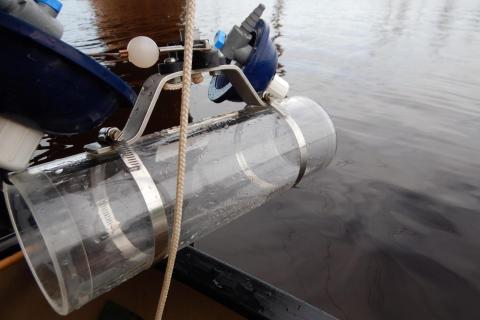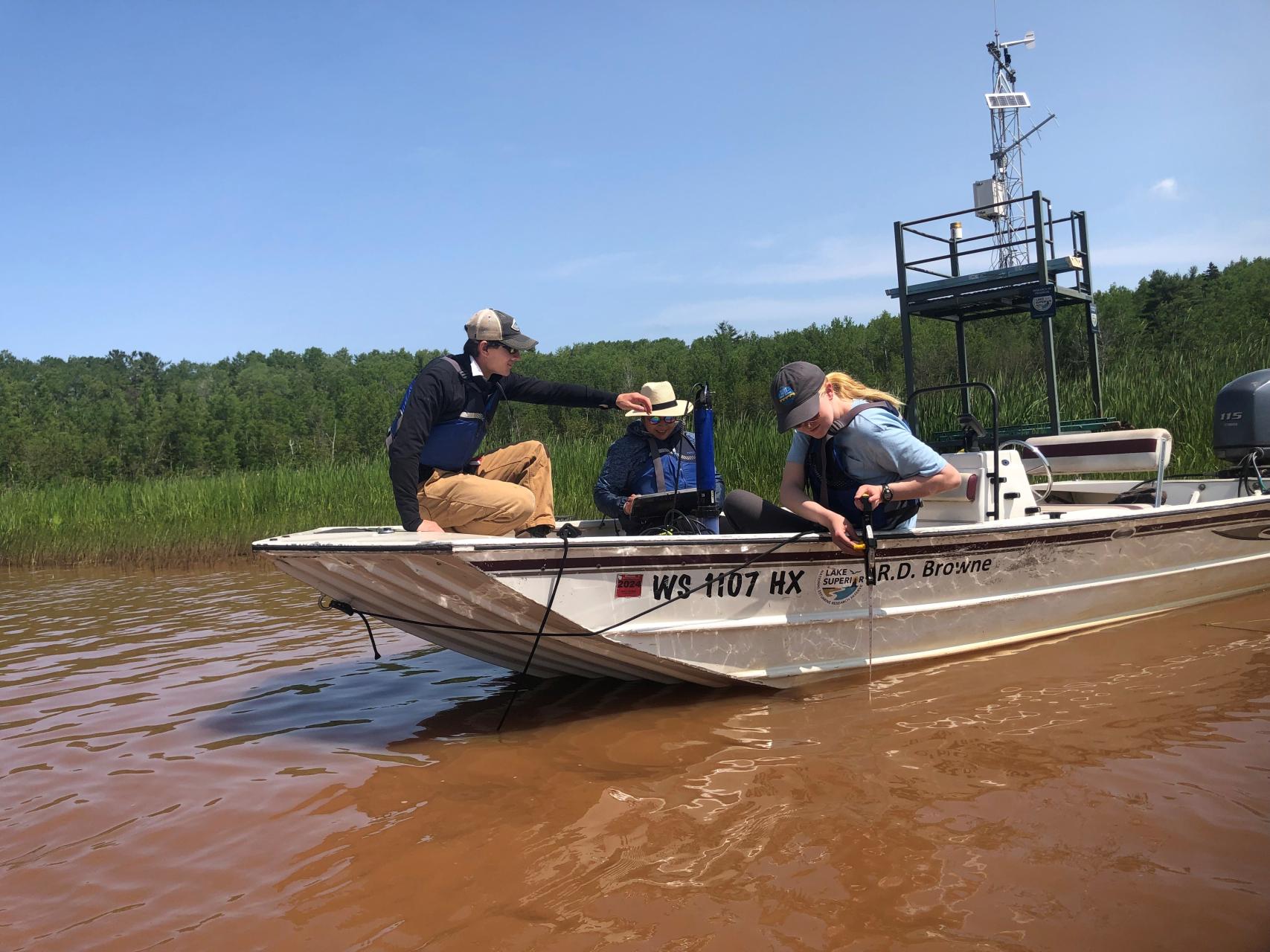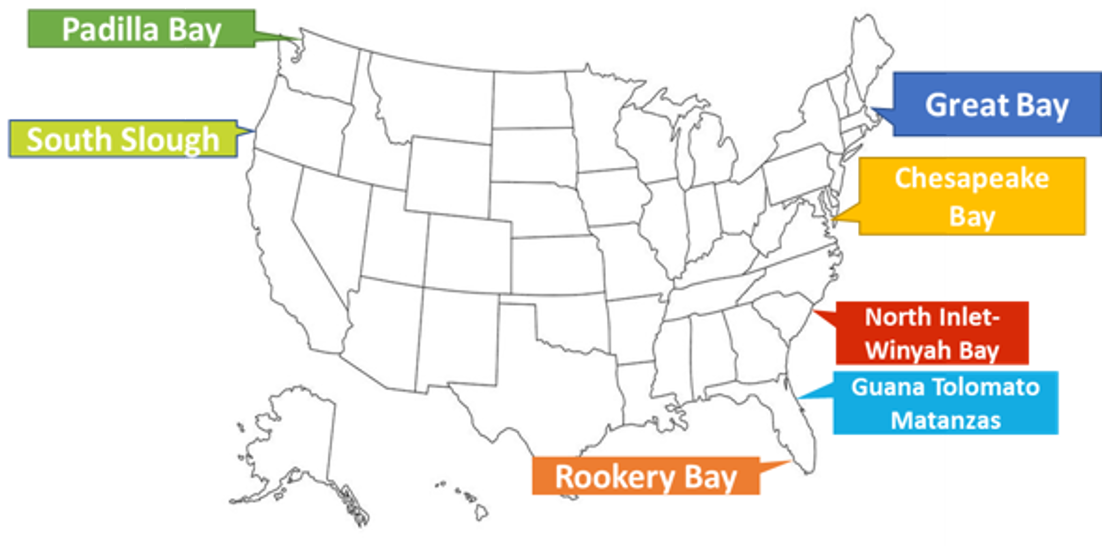
This project piloted a flexible approach for building capacity to analyze SWMP data while providing graduate students with high-quality training in collaborative research and data science through the development of a graduate-level course.
The Project
The NERR System-Wide Monitoring Program (SWMP) provides an opportunity to compare spatiotemporal dynamics across a wide range of estuaries. With decades of SWMP data amassed, there is significant interest across the NERRS in using the data to identify long-term trends, yet limited personnel capacity has prevented these datasets from being fully utilized. This project performed novel analyses of SWMP data to identify long-term trends at seven reserves.
In addition to the novel SWMP data analyses, the project also piloted a flexible approach for addressing ongoing data synthesis needs across the NERRS through the development of a graduate-level course in partnership with the University of Wisconsin - Madison. Working closely with seven reserves, graduate students at University of Wisconsin - Madison conducted data analyses to understand ecological changes in estuarine environments. The team designed the course to apply the principles of Collaborative Science, incorporating tools from the Guide to Collaborative Science, and utilized SWMP data as a resource to develop data science skills. Students also participated in a field trip at the Lake Superior Reserve to learn about each of the NERRS sectors, how reserves work with a variety of local partners, and the ecology of estuaries through outdoor activities and data collection.
The team's approach allowed them to directly address specific user needs while testing new data analysis approaches. By integrating SWMP data analysis with academic training, the project developed a sustainable model to address SWMP synthesis capacity needs identified by reserves, while providing a high-quality training opportunity in data science and coastal processes for graduate students. The project catalyzed deeper understanding of analytical methods and estuarine ecosystems across multiple scales for participating reserve staff and graduate students. Results from student analyses offered a clearer picture of estuary conditions and answered important place-based research and management questions. This has laid the groundwork for expanded use of SWMP data and increased engagement of early professionals in coastal science and management.
The Impact
- Developed new methods and tools to empower the NERRS and other estuary research programs to use long-term SWMP data.
- Deepened system capacity for data analysis through the engagement of multiple NERRS partners including OCM, CDMO, UW-Madison, and staff from seven NERRs.
- Introduced a cohort of students to the NOAA NERRS research community while providing students with interactive hands-on learning opportunities with big data and analytical techniques.

